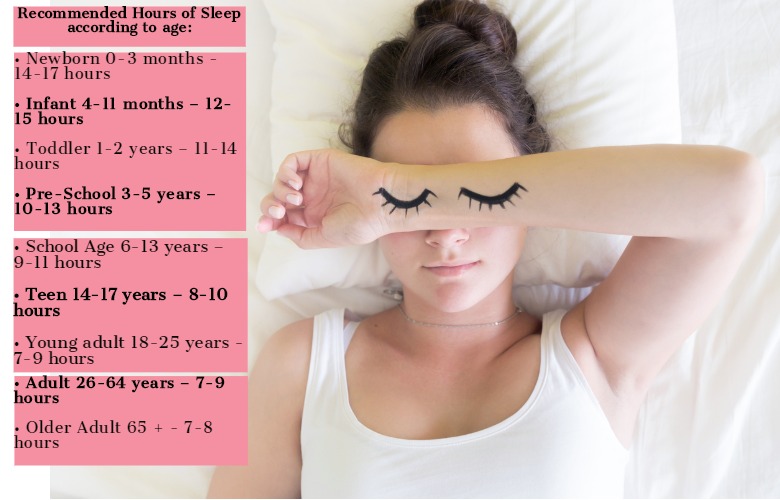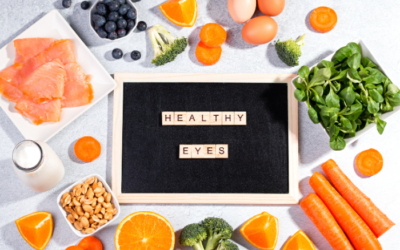5 Natural Tips for a Better Sleep
What is the circadian rhythm?
Your circadian rhythm is your own personal 24-hour internal clock that your brain establishes cycles between alertness and sleepiness. These are also known as sleep/wake/sleep cycles. Ever feel tired at the exact time every day? That is your circadian rhythm hard at work. For most Americans, this time sleepiness occurs during the late afternoon and in the middle of the night.
The part of your brain that controls your circadian rhythm is called the hypothalamus, which can be impacted by light and dark. Your eyes tell the hypothalamus that it is dark, and you get sleepy. Your brain is then signaled which tells your body to release melatonin and you are ready for bed! Vice versa for light – your body says wake up! This can also be affected by things like shift changes at work, jet lag, daylight savings time and winter – when there is less light throughout the day.
The best way to keep your circadian rhythm going is to establish regular sleep hours – including weekends – by going to sleep and waking up at the same time each day.
Sleep deprivation
Sleep deprivation can be caused by a variety of factors including insomnia, depression, hormonal imbalances, shift work, sleep apnea, restlessness, stress, anxiety, and a new baby in the house. Staying up late due to late-night entertainment, studying, and a demanding job is also at fault. According to the National Sleep Foundation, the required number of hours to sleep each night varies by age.

Symptoms of sleep deprivation include:
- Alters normal brain function, especially attention and concentration
- Can play a role in tragic accidents including transportation and work-related
- Can be caused by an illness that has not been diagnosed
- Yawning
- Fatigue
- Irritability
- Moodiness
- Depression
- Difficulty learning
- Motivation issues
- Clumsiness
- Carb cravings
- Low sex drive
- Decreased immune system function
- Affects body weight
- Affects insulin release (1)
Insomnia and other sleep disorders
There are a few sleep disorders that can prevent sleep:
- Insomnia – difficulty falling asleep and/or staying asleep
- Sleep apnea – abnormal breathing patterns while you sleep
- Restless legs syndrome (RLS) – a type of sleep movement disorder
- Narcolepsy – condition with extreme sleepiness or falling asleep suddenly during the day
Natural Tips for a Better Sleep
1 Stay active
During the winter months, your body’s circadian rhythm may change due to the shorter hours of daylight – meaning your body may crave 1-2 hours more sleep per day. You may also find it is harder to wake in the morning and it may be a good idea to fight the urge to stay in bed. This may throw your body’s circadian rhythm off and can cause health issues including insomnia, depression and seasonal affective disorder. Exercise is an excellent way to give your body an extra energy boost during the day and tire your body out at night when you need to get those Zzzz’s!
According to Charlene Gamaldo, M.D., medical director of Johns Hopkins Center for Sleep, studies show, “We have solid evidence that exercise does, in fact, help you fall asleep more quickly and improves sleep quality”. Exercise, especially aerobic exercise, releases endorphins in your body. In addition, exercise increases your core temperature which will tell your body it is time to wake up and as night nears your body will tell you it is time to sleep.
The amount of exercise you need for better sleep health is about 30 minutes to 60 minutes per day. No time to hit the gym? Try brisk walking after your lunch or go for a jog after dinner.
2 Change your environment
Just as the environment changes outdoors during the winter months, so should your indoor environment. Here are some ways to winterize your life:
- Dry air means dry nasal passages – use a humidifier to keep them from drying out
- Ditto for your skin – use a good moisturizer regularly to keep your skin from getting too dry
- Don’t let your bedroom get too cold or too warm – feeling uncomfortable can keep you from going to sleep or staying asleep.
- Wear comfortable clothes to bed – again you should be as comfortable as you can before going to sleep
- Turn off your phone – turn it on airplane mode – keep the flashing blue light from your eyes because it may affect brainwaves and the body may produce less melatonin.
- Try aromatherapy – especially lavender, frankincense, and bergamot essential oils – all will create a super relaxing environment.
3 Do you have enough melatonin?
If you have sleep issues, you may not. Melatonin is a hormone produced in the body and its release into the body is dictated by the circadian rhythm, which is dictated in turn by dark. Your body produces less melatonin as you age. Melatonin is also available as a supplement and can be useful for the following:
- Insomnia
- Jet lag
- Shift work disorder
- Sleep-Wake cycle disturbances
- Interrupted sleep.
4 Soothe yourself to sleep
To get your body to relax and prepare your mind for sleep, you can:
- Turn off all electronics at least an hour before bed
- Curl up with a good book: reading can make the mind wander and tire your eyes – both make you sleepy
- Fill the room with relaxing scents through aromatherapy or directly on your skin – lavender, ylang-ylang, bergamot orange, sandalwood, and cedar wood essential oils can be helpful
- Take a long bath to unwind
- Enjoy a cup of chamomile tea – can help with insomnia, relax the mind, and decrease anxiety
- Try meditation – this can help your mind let go and release the tensions of the day
- Expose yourself to sunlight in the morning which can help keep your circadian rhythm in balance
5 Herbal formulas and Supplements
There are many all-natural herbal remedies and supplements that are not melatonin to help you sleep
- Valerian root – traditional used for centuries to support sleep
- Lemon balm – used for sleep since the Middle Ages
- Passionflower – traditionally used for insomnia, to alleviate anxiety and improve sleep
- Magnolia bark – used in traditional Chinese medicine traditionally for stress relieve and contains sedative properties
- Melatonin – Your body produces this hormone to tell your body when it is time to sleep, however modern schedules can throw your body off and not produce enough
- Magnesium – Helps calm your mind and body – so you can relax and go to sleep
- Glycine – an amino acid that may help your body sleep
- L-theanine – another amino acid that helps calm and relax your body and mind – this can also help with anxiety which can cause insomnia or sleeplessness
These are just a handful of natural ways you can support a better night’s sleep. Since during the winter months, you may find your body’s sleep-wake cycles will change – it is a great idea to proactively prep during the autumn before your sleep patterns change.
Why can’t I find my favorite sleep supplements?
You may have noticed that your favorite sleep supplements are no longer available to purchase. That is because some sleep supplements contain an ingredient called, phenibut or 4-amino-3-phenylbutyric acid HCl. The FDA has made a decision that phenibut or 4-amino-3-phenylbutyric acid HCl in synthetic forms is now being reclassified because it does not meet the definition of a dietary ingredient and cannot be used in dietary supplements.
Some of the popular products that contain phenibut include Kavinace and Kavinace Ultra PM by NeuroScience Inc, Phenitropic, Phenitropic PM and Phenitropic Ultra PM by Biotics Research, and Gabacore by Apex Energetics. These manufacturers intend on reformulating these products and that should take two to four months.
In the meantime, we recommend the following sleep support supplements as alternatives:
Seriphos
Sedalin
Nardova
Zizyphus 18
Melatonin
If you have any questions about this, please do not hesitate to call our clinic to speak to one of our practitioners regarding this.
References
1 Esther Donga, Marieke van Dijk, J. Gert van Dijk, Nienke R. Biermasz, Gert-Jan Lammers, Klaas W. van Kralingen, Eleonara P. M. Corssmit, Johannes A. Romijn; A Single Night of Partial Sleep Deprivation Induces Insulin Resistance in Multiple Metabolic Pathways in Healthy Subjects, The Journal of Clinical Endocrinology & Metabolism, Volume 95, Issue 6, 1 June 2010, Pages 2963–2968

Jemile earned a degree in Food Studies and Writing and has worked for almost 23 years in the medical and health industries. She has been a digital marketing consultant for Acupuncture Atlanta since 2011 as the social media manager and content manager. Writing has been a childhood dream for Jemile and writing daily for clients in the health, wellness, food, and art industries have been phenomenal. Jemile is originally from Brooklyn, NY, and lives in the Hudson Valley, NY. She lives with her husband, two daughters, her dog, and two fish. You can contact Jemile via Linkedin, her mom blog, or her website, lunaroseconsulting.com



